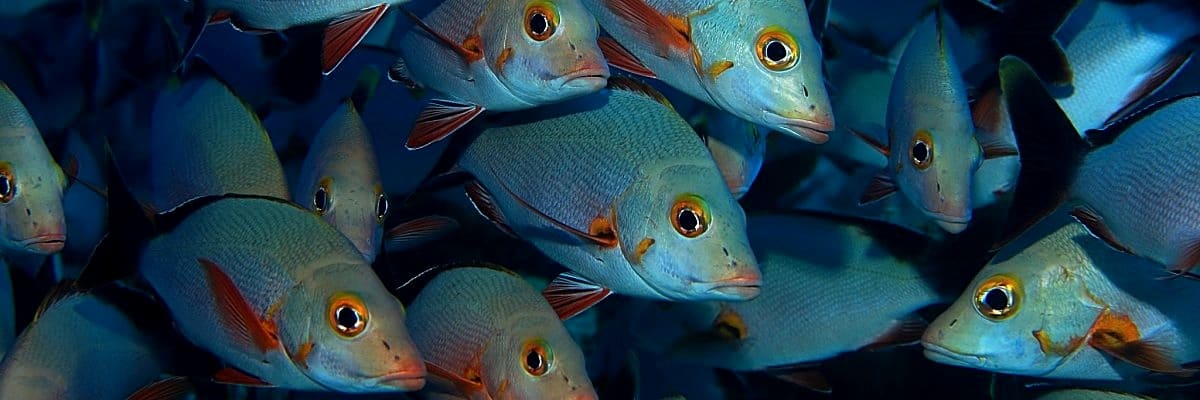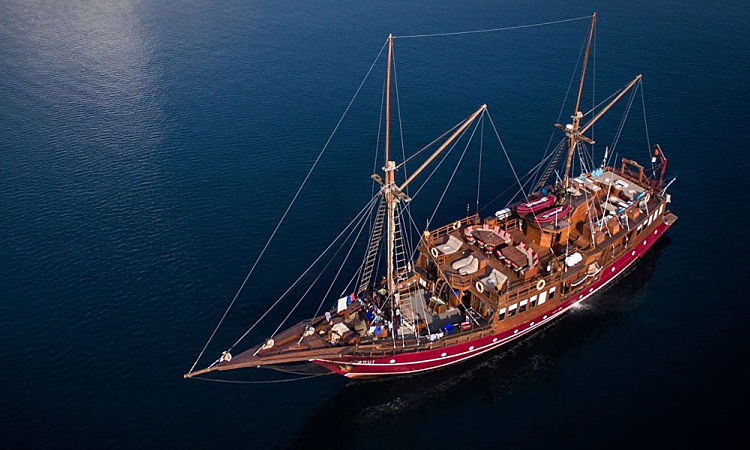
To help you plan your trip, we’ve prepared a list of basic information you’ll want to know before you book. Once your trip has been reserved, you’ll receive pre-departure information with all the details you need for your adventure.
Your arrival airport in the Maldives will be Male (MLE) International Airport which is located near the capital city of Male on Hulhule Island.
Many major airlines fly into Male (MLE): Singapore Airlines (via Singapore), Emirates (via Dubai), Air Sri Lanka (via Colombo), Qatar Airways (via Doha) and Delta Air Lines. There are many connecting flights from the US, the UK and Europe including a direct service from London Gatwick with British Airways.
We recommend arriving a day before your cruise starts. Delayed flights can occasionally arrive after departure time for the boat. Should you wish to book a hotel, we can give you recommendations or make the arrangements for you.
If you choose an itinerary in the Northern or Southern Atolls, you will take a domestic flight …either one-way or round-trip. The domestic flights all originate in Male (MLE) and we will furnish details at the time of booking.
Visitors must have a current passport, adequate funds to support themselves, and a return airline ticket. US citizens are required to have a passport valid for 6 months from date of entry. It is the travellers’ responsibility to ensure they have the proper visa to travel into each country on his or her itinerary as well as for re-entry and return to their own country. Since regulations vary by country, contact your consulate or embassy for specific requirements.
Thirty-day tourist visas are issued on arrival at the immigration desk at Maldives International airport for all nationalities and are free of charge. All visitors must be in possession of a return or onward flight ticket. We recommend that you have your Liveaboard Voucher or Tour Company voucher to hand just in case you are asked to present it to airport security upon arrival as proof of where you are staying.
The Maldives lie in the monsoon belt of the Indian Ocean and have a varied weather pattern although the temperature remains fairly constant. There are two seasons, a drier northeast monsoon starting mid-December and a wet southwest monsoon between May and November.
The days are hot and humid throughout the year with temperatures ranging from 25-30° C (77-86° F) and humidity at 60-80%. Sunshine doesn’t differ much between the seasons but there is a big difference in rainfall.
Water temperatures usually stay between 27°- 30°C (80°- 86° oF) although thermoclines can sometimes be found at depths below 20 meters (65 feet). As the average water temperature is warm, a 3 mm shortie or 3 mm full wetsuit is generally sufficient for most divers.
The Maldives offers three distinctly different types of diving: inside the atolls, outside the atolls and in the channels or passes, where the currents are strongest and you’ll find the greatest congregation of fish life.
Spectacular channel-drift dives on incoming and outgoing currents offer opportunities to see exciting pelagic animals. Currents vary in strength and can be strong on certain dives so negative entry and fast descent is sometimes required. Current/reef hooks should be ready to use.
Wreck diving, coral reef and pinnacle dives as well as world-famous night dives are also on offer in the Maldives. Typically you will find large shallow reef plateaus on the sides of atolls next to wide lagoons which then drop down to about 25 meters (82 feet).
Each island in the Maldives has its own sandy lagoon, with a depth of around 20 meters (65 feet). These areas are protected from the currents so offer the ideal location for diving courses and snorkeling but they do not offer much diversity of marine life. Bear in mind that for any liveaboard itinerary in the Maldives, dive sites may change from those originally planned, based on prevailing monsoon, currents and weather conditions.
All your diving is made from dhonis or zodiacs to give precise entry and exits points.
The Maldives offer excellent diving opportunities for all experience levels. No minimum number of dives is required, however familiarity with drift dives is strongly recommended. On some liveaboards, very experienced divers can dive in a buddy pair unguided.
For novice divers, using diving dhonis, suitable locations are found for ‘easy’ shallow diving as well as for snorkeling. These areas are subject to the itinerary and weather conditions. Due to the currents, dive guides will occasionally advise divers to ‘sit out’ any dives that they feel are not suitable for the less experienced.
All year round. Itineraries are prepared and specific dive sites are carefully chosen depending on the type of prevailing monsoon. The weather pattern has a strong influence on the currents.
During the Northeast monsoon, ocean currents are driven through the atoll channels from the Northeast; conversely, during the Southwest monsoon, they flow into the atolls from the Southwest. These patterns have enormous significance for the diving and we will advise you … but, in the end, the captain will be responsible for getting you to the best & safest diving possible.
Maldivian liveaboards have a dhoni (small dive support vessel), which has ample storage space for diving equipment and most of the liveaboards today offer scuba gear (if reserved in advance).
In addition to any of your own personal scuba equipment that you take, it is advisable to take an SMB (with a minimum of 5 meters (16 feet) of line to deploy during the safety stop), a dive computer and a torch for night dives.
The Maldivian health service relies heavily on medical staff from overseas and facilities outside the capital are very limited. If you are seriously unwell you will need to go to hospital in Male, or to the nearest atoll capital with a hospital or health centre. Male also has a private hospital, which offers high-quality care but this comes at a cost. Your travel and medical insurance should cover such eventualities.
There are decompression chambers at both Baros and Kuramathi resorts.
In general, mosquitoes are not a problem in the Maldives, however, they can appear at certain times of the year, usually after heavy rainfall. Dengue fever, a viral disease transmitted by mosquitoes, occurs in Maldivian villages but is not a significant risk on liveaboards, resort islands or in the capital.
The only vaccination officially required by the Maldives is one for yellow fever if you’re coming from an area where yellow fever is endemic. Malaria prophylaxis is not necessary.
Current studies show that you should wait at least 24 hours after multiple days with repetitive diving before flying. Please keep this in mind before you book your onward international or domestic flights.
The Maldivian currency is the Rufiyaa (Rf) and is closely linked to the US Dollar. Most of the resort islands and local tourist shops accept US dollars. It is not necessary to exchange any money into Rufiyaa.
All the resorts, hotels and most liveaboards and souvenir shops accept major credit cards. Almost all items are priced in US dollars. There is a local bank branch at the International airport’s arrival terminal that can exchange your currency into US dollars.
Travelers’ Checks are not accepted at any bank or at any resort island in the Maldives.
Port Fees, Park Fees and government bed/tourist tax are applicable to all liveaboard guests. Some liveaboards include these charges in their package rates & you will find that information on each boat’s individual info page on our site. At the end of your cruise, any onboard purchases will have a 12% GST tax applied (always subject to change).
Travel insurance : We strongly recommend comprehensive travel insurance to cover against unforeseeable events including personal & business impediments, illness, travel delays and missed flight connections. We hate seeing any of our clients fall into the category of unfortunate travelers who are without coverage for unexpected circumstances
Diving insurance: the liveaboards now require diving insurance. You must not confuse regular travel medical and/or travel insurance with diving-specific insurance such as DAN (Divers Alert Network) or Dive Assure. This type of insurance will cover all of your scuba diving and snorkeling activities, including the costs for recompression chamber treatment and emergency air evacuation. These are not covered by the average travel insurance.
We recommend Dive Assure as they are one of the few companies who offer insurance which includes general travel insurance, including trip cancellation …. plus full dive coverage.
Click here or on the button in the side panel to access Dive Assure directly.
Our tailor made Liveaboard Finder. It’s the easiest way to see the best offers, check availability in different destinations and get diving quickly!
